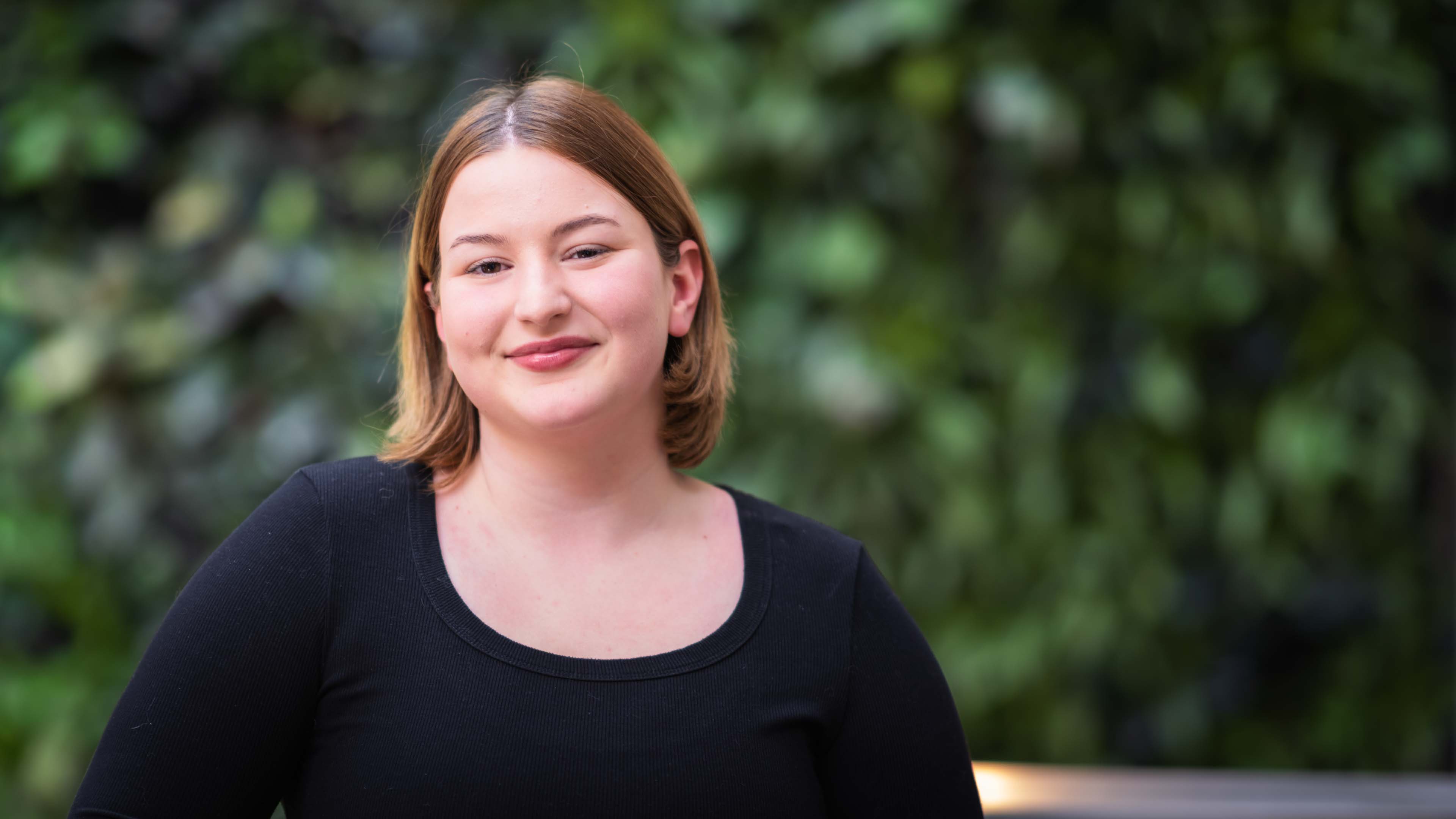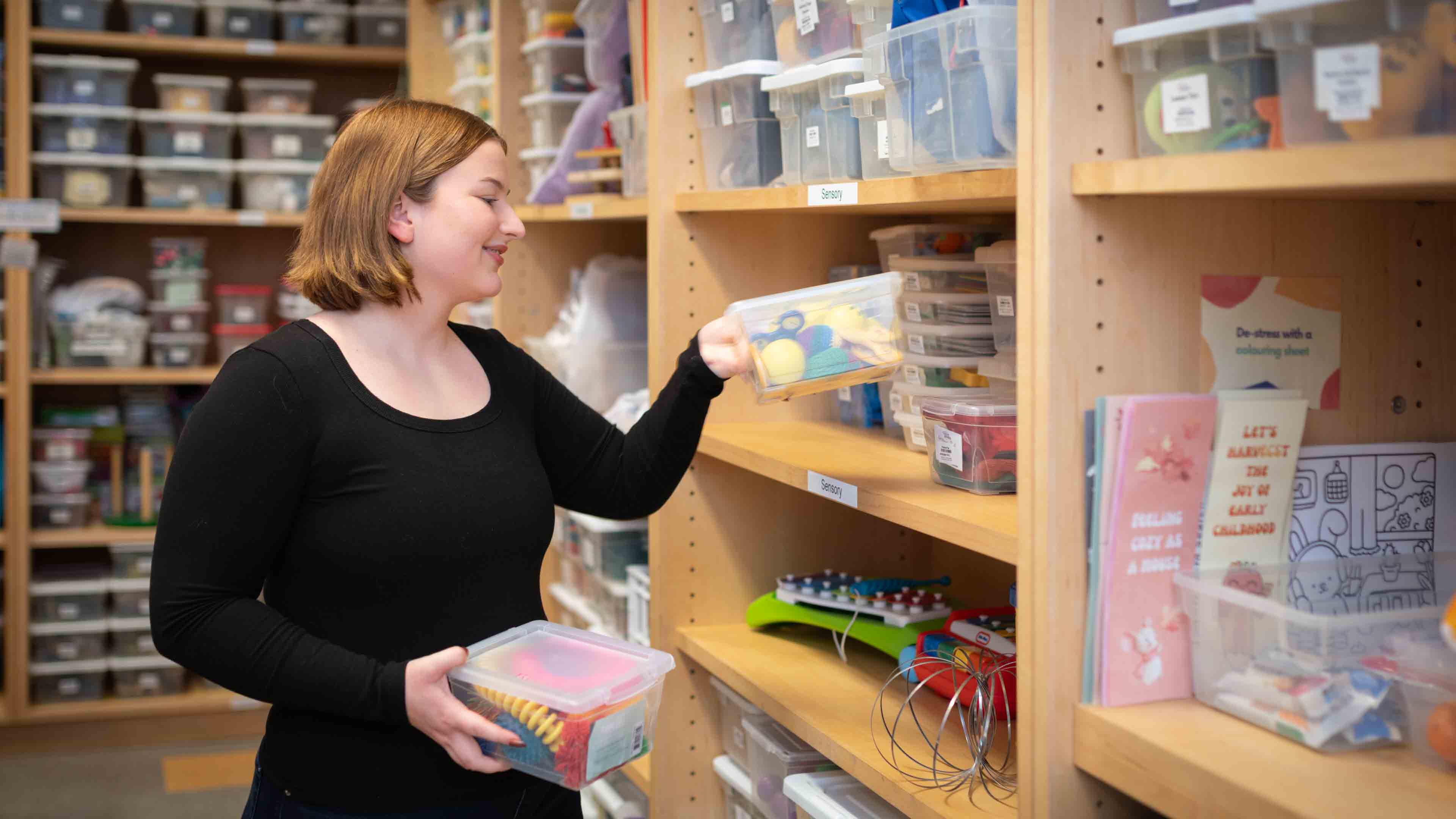Written by Early Childhood Studies student Amelia Palmer

The impact that intergenerational trauma has on Indigenous communities and the early childhood field is what’s stuck with me the most when learning about Truth and Reconciliation in Guelph-Humber's Early Childhood Studies (ECS) program. Canada’s history with Indigenous peoples includes stealing land, forced assimilation, attempts to prevent the use of their language and customs, the forced removal of children from their families as they’re placed into residential schools, the discovery of mass unmarked graves, the sterilization of Indigenous women, and the continued overrepresentation of Indigenous children in the foster system, among many other injustices. These infringements on fundamental human rights have prevented the natural flow of passing on parenting from generation to generation, perpetuating an intergenerational impact.
The Sixties Scoop involved child welfare workers taking an inordinate number of children into care without understanding Indigenous families’ history of trauma or their customs, including the importance of the participation of extended families and communities in raising the child. When working with Indigenous families, it is our responsibility to adopt a trauma-informed approach, learn the truth from them, and attempt to reconcile through listening instead of telling, especially when past trauma includes silencing and assimilation. Beyond that, as early childhood professionals imposing our beliefs onto the child, it limits our ability to build relationships and our ability to draw on their strengths and supports, allowing us to know the child for who they are.
An Early Childhood Professional’s Role in Helping Young Children Build Respect and Awareness of Indigenous Histories and Cultures
Our role begins with educating ourselves on Indigenous histories, enabling us to guide young children with knowledge, respect, and cultural awareness. At all times, early childhood professionals should promote inclusion and engagement opportunities for all children. At every age, there is a universal need to be seen and respected for one’s personal identity. To build respect and awareness of Indigenous histories and cultures, an early childhood professional can model respect for all cultures and refrain from judging others based on their own cultural framework, and instead learn about, include, and embrace diverse cultures and practices. This also means creating a safe space by immediately addressing any concerns about racism, prejudicial comments, or behaviours.
We should acknowledge important days like Truth and Reconciliation Day with age-appropriate explanations for why and how these days came to be recognized. In addition, we should support reconciliation on a daily basis by presenting Indigenous voices, culture, and history in everyday learning. Ensuring that all children and families feel seen, heard, and represented in their environments. Other learning opportunities include inviting guest speakers or Elders from Indigenous communities into the classroom to build relationships and share stories.

Understanding Indigenous Ways of Knowing and Being to Better the Field of Early Childhood Studies
Indigenous Ways of Knowing and Being have taught me the importance of family when working with the child. The family knows the child best and can offer a perspective you otherwise might not be able to see. This includes integrating what is significant to them into your goals for the child. After all, we don’t just serve the child, but the family as well. Connecting to the family through photos on the wall can provide the child with a sense of belonging and comfort in the classroom space. For Indigenous families, this may involve including extended families and honouring input from Elders. Other Indigenous Ways of Knowing that can better your practice as an early childhood professional include embracing a holistic view and understanding the interconnectedness of their physical, cognitive, social-emotional and language development, teaching the child love and respect for all land and animals, using community-based learning and promoting a sense of belonging in the school/daycare community.
Written by Early Childhood Studies student Amelia Palmer
Learn more about Truth and Reconciliation and Indigenous services on campus:

